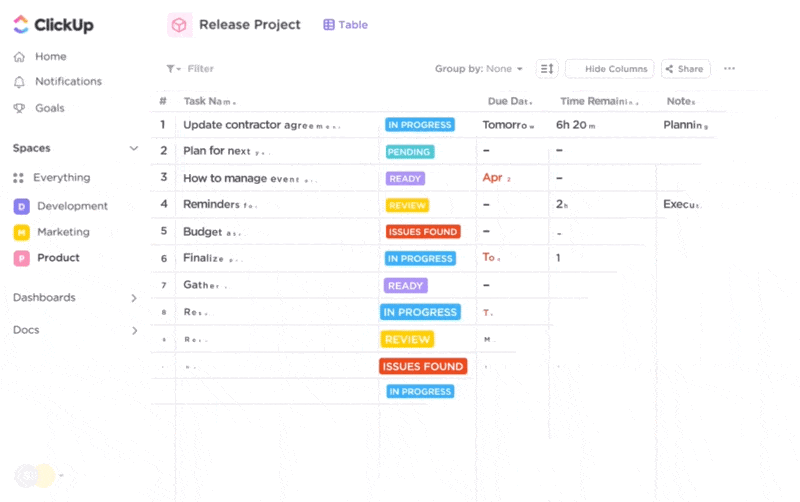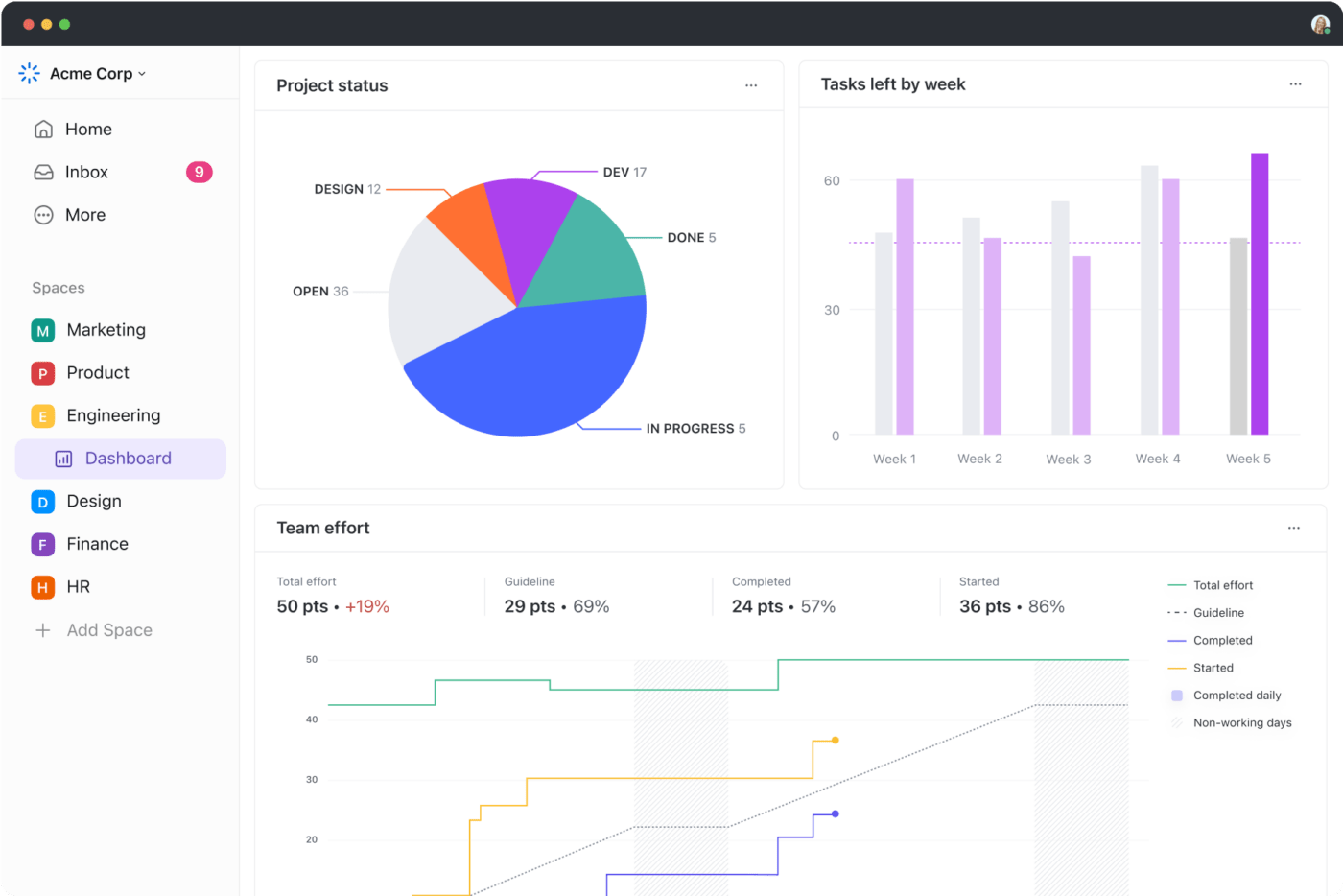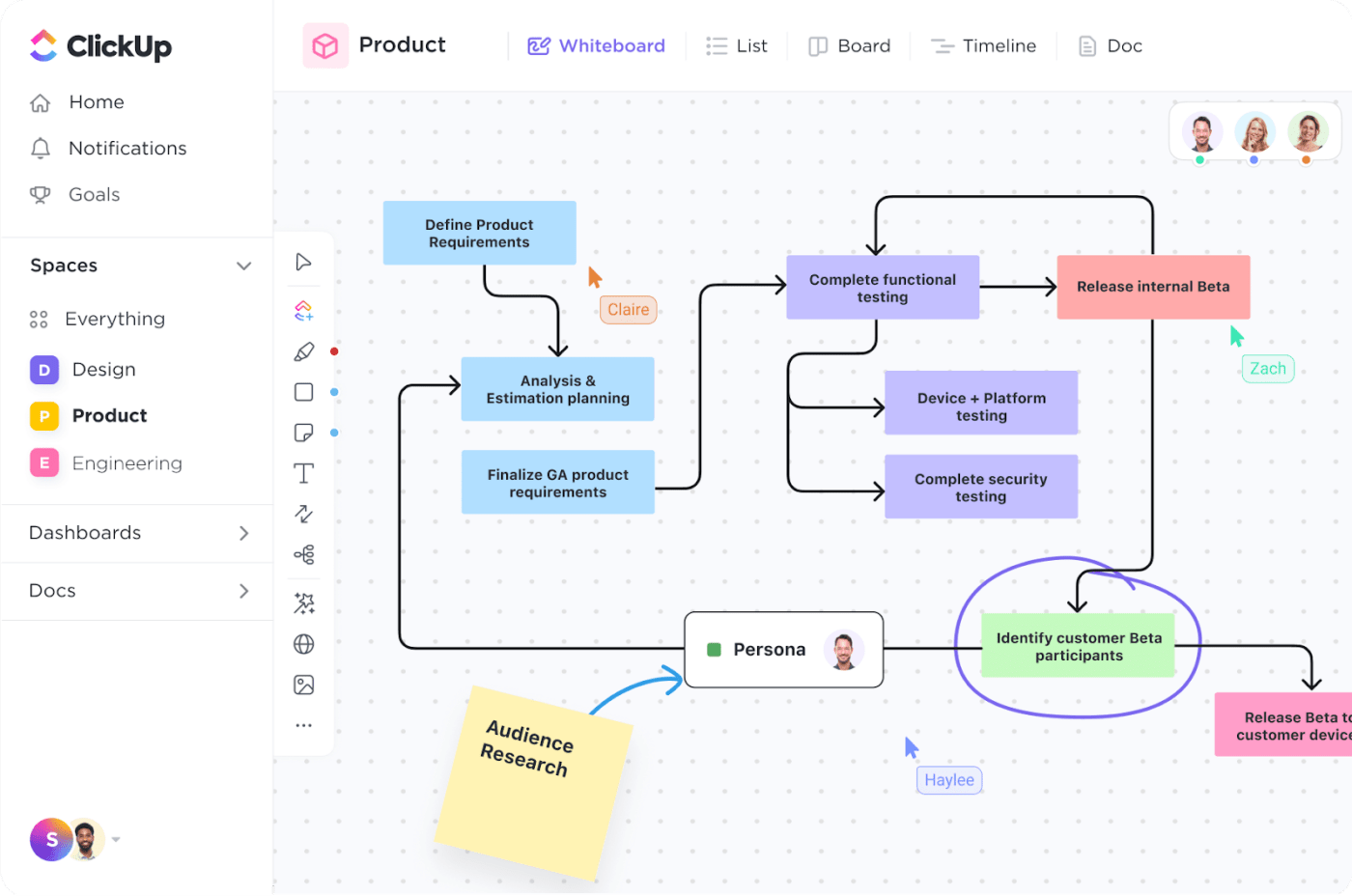

Whether you’re a professional managing a team or a job seeker exploring ways to build your career, having robust organizational skills can help you reach your goals.
Not only does organization improve your deskspace, it also betters your headspace, enabling you to work on multiple projects while keeping the details straight. 🧘
Learn more about organizational skills, including five key skills to help your professional development. You’ll also learn tips to highlight these competencies when applying for a job and techniques to improve these skills.
What Are Organizational Skills?
Organizational skills are capabilities that help you stay on top of tasks, allocate your time, and develop processes to prioritize and maximize your efforts. They’re considered soft skills—personal attributes rather than technical skills that allow you to manage your work, interact with colleagues, and make decisions. ✅
Organizational skills include time management, prioritization, and self-motivation. These skills make you a more effective employee and improve your communication and negotiation skills, which can help in all avenues of your life.
In fact, in one survey, nearly 45% of hiring managers said they look for organizational skills when reviewing candidates for job positions.
Good organizational skills allow you to work on multiple projects without getting lost. You can identify which work needs your attention first and which will take more time than another task.
This information lets you prioritize and structure your schedule to maximize your time.
5 Organizational Skills to Grow Your Career
Boosting your organizational skills can help you become a better employee and more effective at everything you do. If you’re looking to build these skills to be more organized at work or lay the foundation for career growth in a new job, consider these five elements.
1. Time management
Time management is an organizational skill that helps you allocate the right amount of time to specific tasks. This transferable skill can involve breaking down tasks on a daily, weekly, or monthly basis. It can also mean setting your schedule for each day and breaking down the work you must do into manageable chunks of time. ⏰
Time management isn’t just about scheduling your day and managing your schedule effectively. That means knowing when to say no if you already have too much on your plate. It also involves delegating when someone on your team or department better handles a task.

In today’s digital age, time management skills also involve creating systems to best use your time. Sometimes, that means using automation and blueprints—like project management templates—to speed up specific tasks. It can also mean signing up for a project management tool (hello, ClickUp!) that streamlines workflows.
2. Goal setting
It’s easy to get distracted, especially if you don’t have set objectives you’re trying to meet. Without clearly defined goals, you may get to the office and not know what you should be working on. Clear objectives are key organizational skills that ensure you put your efforts where they matter most. 🏆
However, you can’t simply set a simple goal and carry on. Your goals should be actionable, achievable, and measurable. These goals should fit within a logical timeframe, and you should establish what metrics you’ll use to track progress.
Here are some examples of measurable goals:
- Developing and launching a new product for your target market by the end of the year
- Improving customer conversion rates by a certain percentage within the next three months
- Increasing sales by a specific amount within the quarter
- Driving a certain percentage of conversions through email campaigns this month
3. Decision making
Decision-making is one of the most important organizational skills. You can’t make good decisions if you’re not organized because you won’t have all the necessary information. 🤔
To make informed decisions, you must know as much as possible about the issue. For instance, if you’re in manufacturing and are dealing with insufficient resources, you’d need to know what’s causing the shortfall and why. For product managers, this might be an issue in the supply chain or a problem in the market where customers no longer need a product you’re working on.
You’ll need to make decisions at almost any job—whether you’re the CEO or an entry-level employee. These decisions include considering risks before launching a new initiative or getting insights from other team members before making changes to the task calendar. ⚖️
Building solid decision-making skills makes meeting deadlines, delegating tasks, and reaching goals easier. It also makes you a more effective leader and someone team members will look to for advice when making their own decisions.
4. Problem solving
Whether you’re at a job interview or looking to be more effective in your existing role, demonstrating problem-solving skills is one way to stand out from the crowd. These skills take time and effort to master, but once you do, you’ll be better able to handle tricky situations at work. ⚠️
Problem solving involves strategically thinking about a scenario and developing several solutions. The scenario may include a risk that threatens to derail a project or a technical roadblock preventing you from completing your work. How you think about the problem and develop answers is known as problem-solving.
There isn’t a single way to go about this. Essentially, a good problem solver can consider all of the factors, brainstorm potential solutions, and then identify the best option to move forward. 💡
5. Teamwork
Collaboration and teamwork are key skills that enable you to work well with colleagues. These include effective communication skills, understanding different work styles, and applying conflict management techniques. Teamwork involves building an enjoyable work environment that reduces miscommunication and motivates team members to achieve specific goals. 🤝

Teamwork can also mean delegating tasks and managing team relationships. For example, if a problem arises between two team members, you’ll be in charge of smoothing things over.
Creative thinking and viewing the problem from multiple angles can offer deeper insights than approaching a challenge from one person’s perspective. To do this, you’ll need to build effective relationships with everyone you work with.
How to Showcase & Highlight Organizational Skills on Your Resume
Organizational skills aren’t limited to time management, goal setting, decision-making, problem-solving, and teamwork. (Although those are VIPs! 🏅)
There’s also physical organization—which includes the ability to declutter and make your workspace presentable for clients— as well as planning, attention to detail, and multi-tasking.
Once you’ve acquired these organizational skills, showcase them in the best light. That way, potential employers and recruiters can quickly see you have what it takes to succeed. Here are some top ways to highlight your organizational skills when writing your resume. ✨
1. Highlight organizational skills that match the job description
Most organizational skills are highly coveted for roles in any industry, so include them in your resume. Be sure to include specific organizational skills based on the job description, as some employers may be looking for a specific skill set. In your cover letter, you can highlight ways you’ve used particular organizational skills to make an impact in previous roles. 🙌
Some companies use AI tools like applicant tracking systems (ATS) to analyze resumes for specific phrases. When listing your organizational skills, match your phrasing to the wording the job listing uses as closely as possible.
2. Quantify your experience using measurable examples
In the experience section of your resume, list how you built work habits and used your organizational skills to secure wins in past roles. For example, instead of saying you communicate effectively, consider explaining in more detail, such as, “I built communication plans for seven team members and handled 15 conflict resolution meetings.” 🎯
Whenever possible, include numbers that back up your expertise. Whether that’s multi-tasking by handling a certain number of projects at once or setting specific, measurable goals, numbers add substance to your portfolio.
Address different organizational skills, from creating project timelines to building SOPs, such as filing systems or customer satisfaction trackers. Each skill should be highlighted on a different line in your experiences section, focusing on how you used these skills as part of your job duties and responsibilities.
3. List organizational keywords in your skills list and summary section
If your resume has a skills list, clearly spell out any organizational skills you want to highlight. In this section, keep things short and use bullet points to list keywords the recruiter may be looking for based on the job posting.
Here are some examples of organizational skills to include:
- Active listening
- Budgeting
- Time management
- Calendar management
- Collaboration
- Prioritization
In the summary section, you’ll want to include organizational skills again, but turn them into active statements rather than a list. For example, you could say, “Strategic thinker with proven work experience prioritizing projects and delivering them in a timely manner.”
How to Improve Organizational Skills
Here are quick tips to improve these important organizational skills. From getting certifications to creating actionable plans, you’ll find new ways to develop your organizational skills and become more effective at work. 🛠️
Assess your organizational skill levels and create a plan
Before improving your organizational skills, you must know what you already do well and what you can improve on. Set aside time to brainstorm your existing skill set and build a work plan to achieve your objectives.
To maximize time and convenience, use a tool like ClickUp’s Whiteboard to jot down a list of skills and add context under each one. Think of examples of each organizational skill and where you can improve. Write down situations where you effectively applied an organizational skill and make a second list of skills you didn’t use or want to develop further. 🌱

Once you’ve identified what you do well and have clear examples, you can refer to your brainstorming list when attending a job interview or filling out an application. You can also create a to-do list of skills to improve and build a timeline to make progress on each one during your job search.
Manage and track your time
When you’re doing detail-oriented work, it’s easy to lose track of time. Sometimes, that means spending too much time on a task when you should focus on something more important.

Use ClickUp time tracking to monitor your time on each task. A time management matrix can also help you allocate efforts more efficiently.
Add notes to the time tracker to highlight why something took longer than expected. Use reports to view time spent on any project or task and review these regularly to create better plans for high-quality work—and automate the rest.
Set clear and actionable goals
Setting attainable and measurable goals is the key to improving your organizational skills. Instead of setting your goal as a generic statement like “Manage my time better,” be specific.
For example, “Create a task calendar and timeline for completing [project X] by [date].” By setting a clear goal with deliverables (in this case a task calendar and timeline), you’re more likely to stay organized and directly measure your progress. 📈

ClickUp’s Goals can help you establish objectives to improve your organizational skills. Use numerical, task, and True/False Targets to track progress. Create folders for different organizational goals and use the Progress Roll-Up View to see your success on each metric in one convenient place.
Break work down into manageable tasks
For some people, it’s hard to get started if the project is too big or vague. Simplify your approach by breaking larger projects into manageable tasks. Not only does this involve allocating time for each step, but it also means divvying up work and prioritizing it based on importance.
ClickUp Tasks is the perfect way to do your strategic planning and create a to-do list focused on improving your organizational skills. It’s easy to break work into smaller tasks—and Dependencies let you highlight the relationship between related tasks. Add priority flags to highlight work that should be done first and use custom fields to add relevant details for each task. 🔖

Use different ClickUp Views including boards, lists, and calendar timelines to avoid missed deadlines. With an established structure to improve your skills, you’ll be less likely to succumb to procrastination.
Sign up for certifications or classes
We all need help at some point, and the classroom—whether online or in person—can help you boost your organizational skills. Sign up for courses to gain competencies like problem-solving, negotiating tactics, and conflict resolution. For example, Coursera offers online courses with certifications to improve soft skills like active listening and problem resolution.
Keep your workspace clean
Whether you work remotely or have a dedicated space in the company office, keeping your workspace clean fosters better organization, you’re less likely to lose important documents in the shuffle and can locate what you need more easily to make better decisions. 📌

The same goes for your digital workspace. Use a tool like ClickUp Docs to keep all your standard operating procedures (SOPs) in one place. Create folders to store similar information and use sharing permissions to improve collaboration with team members.
Build Your Organizational Skills With ClickUp
Good organizational skills will help you set a better career map whether you’re on a new job search or looking to grow in your current role. From improving communication with your team to collaborating more effectively across departments to managing your time better, being organized will help you reach your goals.
Sign up for ClickUp today and gain access to free tools like built-in calendars, time trackers, and customizable tasks that give you everything you need to improve your organizational skills. And because ClickUp offers automations, AI assistance, and more, you can enjoy a better work-life balance.
Common FAQs
Want to learn more about organizational skills and develop professionally? Here are the answers to a few frequently asked questions.
1. Why is organizational skill important?
Organizational skills are important because they create structure for company processes, save time, and improve resource allocation. Being organized means companies waste less time on unimportant tasks and can reach their goals faster without getting distracted.
2. What are strong organizational skills?
Strong organizational skills include:
- Effective communication
- Time management
- Prioritization
- Strategic planning
- Scheduling and calendaring
- Goal setting
- Attention to detail
- Decision making
- Collaboration and teamwork
3. How do you describe organizational skills?
Organizational skills refer to a person’s ability to stay on top of things like deadlines, task prioritization, and time management. These skills involve creating systems to juggle multiple roles and complex projects without losing sight of the main goal. 🤹



